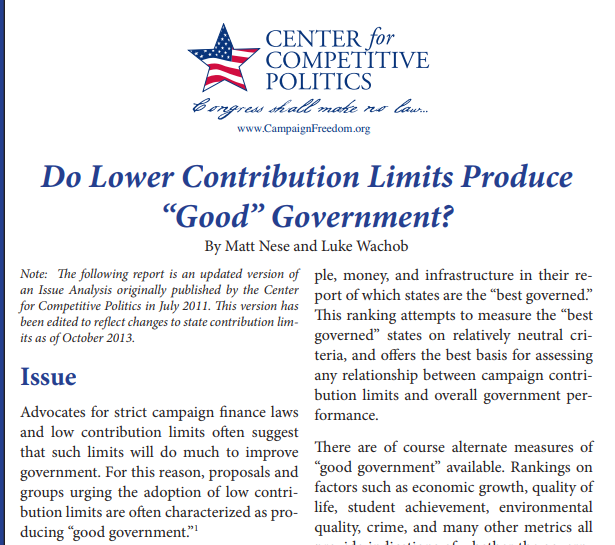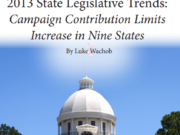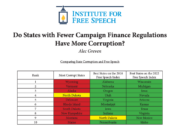Advocates for strict campaign finance laws and low contribution limits often suggest that such limits will do much to improve government. For this reason, proposals and groups urging the adoption of low contribution limits are often characterized as producing “good government.”
One of the more respected evaluations of how well a state government is operated is conducted by the Pew Center on the States. Their analysis focuses on information, people, money, and infrastructure in their report of which states are the “best governed.” This ranking attempts to measure the “best governed” states on relatively neutral criteria, and offers the best basis for assessing any relationship between campaign contribution limits and overall government performance.
This analysis compares individual contribution limits in the 50 states to their ranking in the 2008 Pew study to determine if lower contribution limits are in fact related to better governance.
Ultimately, this analysis does not provide any reason to believe that low limits on what citizens can give to candidates for public office have any effect on how well a state will be governed. The fact that two of the top three states in the rankings, Utah and Virginia, have no limits at all on how much can be given to candidates from any source lends further strength to the conclusion that low limits on campaign contributions are not related to the quality of governance, and that unlimited contributions are no barrier to good government.
Although self-described “reformers” often tout low contribution limits as a basis for good governance, this study strongly suggests such claims are inaccurate, and suggests that elected officials interested in improving the quality of governance in their state should not look to more stringent campaign finance regulation as a way to achieve this goal.
You can read Issue Analysis 6 here.
https://www.ifs.org/wp-content/uploads/2013/10/2017-07-01_Issue-Analysis-6_Albanese_Do-Lower-Contribution-Limits-Produce-Good-Government.pdf














